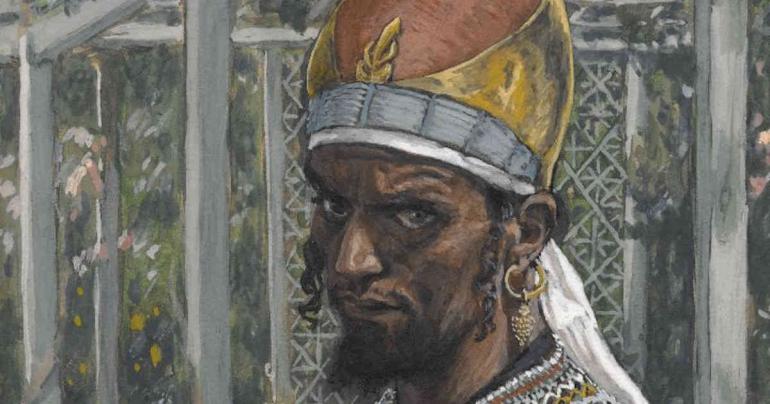Herod and We!

February 4, Friday, 4th Week of Ordinary Time
Daily Readings: Sirach 47: 2-11, Mark 6: 14-29
The Gospel reading recounts John the Baptist's martyrdom. For the sake of justice, his death serves as a reminder that we must all take a stand and raise our voices to support those who are victims of injustice.
Jesus makes no concessions to evil or to what is wrong. He advocated for the oppressed, the needy, and the impoverished. Herod is a man who places his feet on two boats, a sign of recklessness. He occasionally desires to be with the good while simultaneously wishing to cling to evil.
He is a man who desires pleasure over what is pleasing and good in God's eyes. John's reprimand was insufficient because John warned him about his brother's illegal relationship with Herodias, which is detestable in God's eyes.
Herod's blindness caused his relationship with his brother's wife, which compelled him to continue this adulterous relationship. John desired to correct him and assist him in ending this illegal relationship, which would have altered the course of his life. However, he had fallen into Satan's clutches and had forgotten how to distinguish between good and evil. He murders an innocent person to happiness and maintains his illicit relationship with Herodias.
The Gospel teaches us to have the courage to speak out against injustice and evil deeds for the sake of Christ. However, we frequently assume the role of Herod. We desire friendship with both; we have an affinity for good and evil. This indicates that we have arrived at a dead end. We cannot appease God by participating in sin. Because evil frequently overwhelms us, misleads us, and destroys our spiritual life.
Thus, we are commanded to pursue and accept good and please God, the source of all goodness. As with Herod, we submit to Satan, and our flesh will lead us astray from the Lord.
Radio Veritas Asia (RVA), a media platform of the Catholic Church, aims to share Christ. RVA started in 1969 as a continental Catholic radio station to serve Asian countries in their respective local language, thus earning the tag “the Voice of Asian Christianity.” Responding to the emerging context, RVA embraced media platforms to connect with the global Asian audience via its 21 language websites and various social media platforms.













